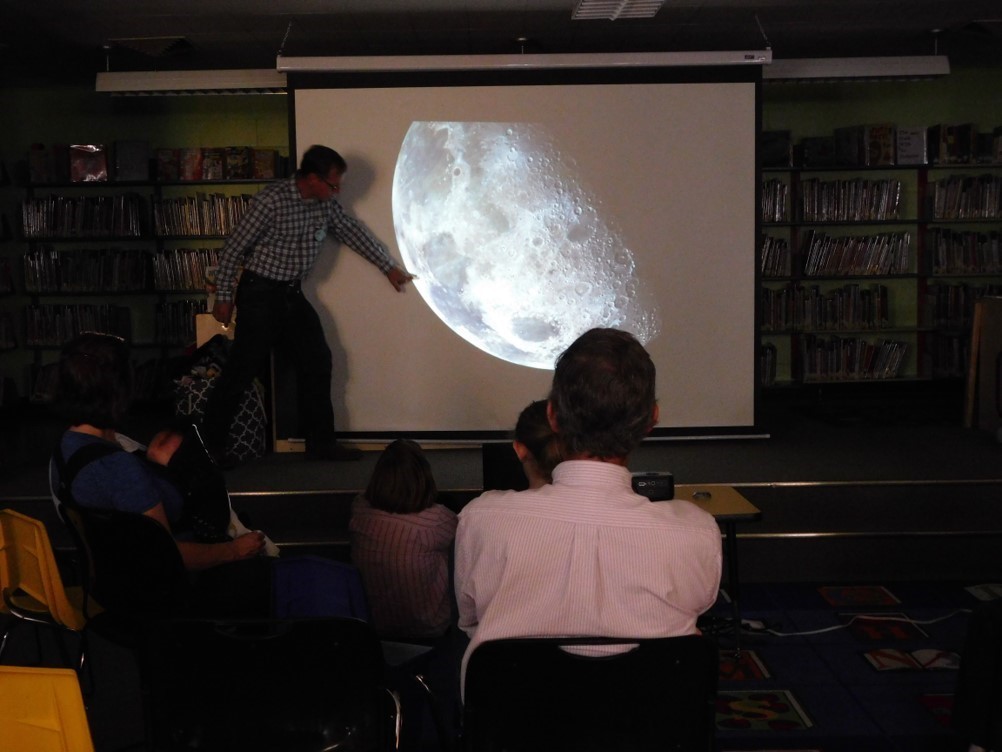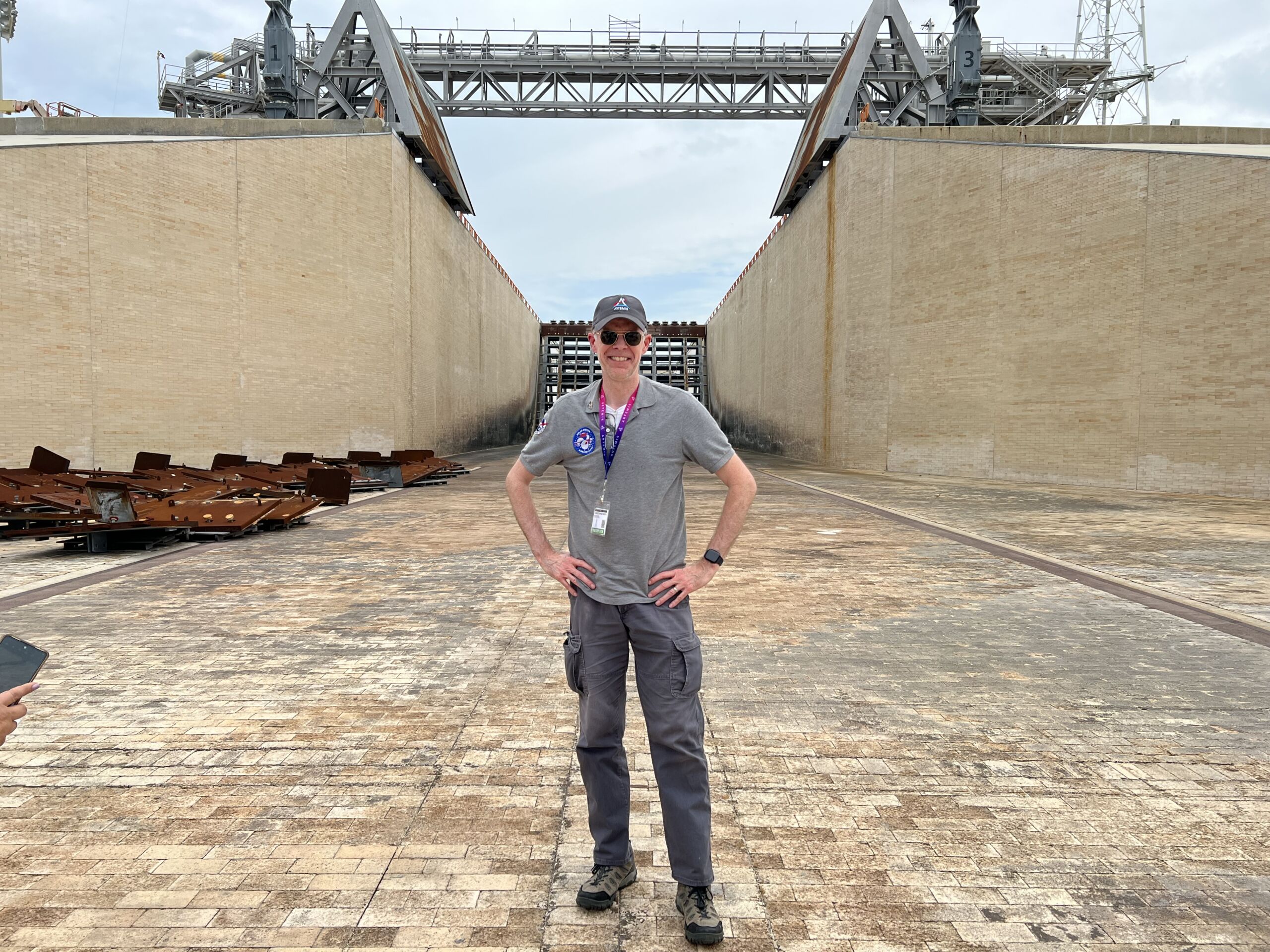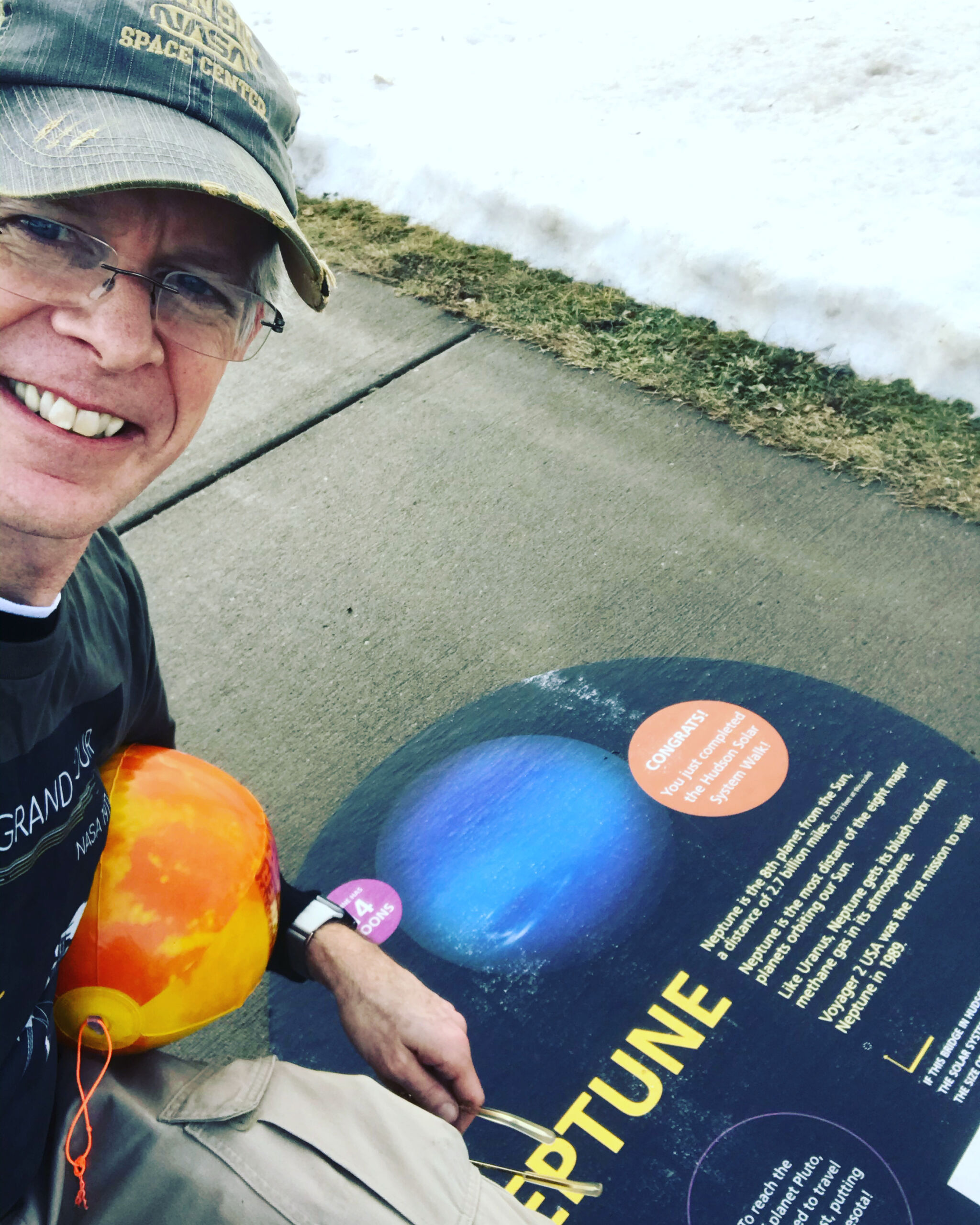Written by Susan Rolfsmeier, Assistant Director at Chadron Public Library
Things will go wrong. I am not a pessimist, but I have enough stories of accidentally deleting lab reports (pre-autosave) and wrong turns that led to being lost at the worst possible times that I have developed an unscientific expectation, a strong superstition, that if something can go wrong it will. My Mom used to call this Murphy’s Law. When I plan library programs, I’ve come to expect that things could go wrong, but I have also decided that this is okay. I can cope with things going wrong, and you can too.
During the NASA @My Library project our library had some ambitious plans. We were going to go through the NASA Speaker’s Bureau and invite someone to come to our rural library. An in-person speaker did not work out (this was pre-Covid), but there was a chance to have her call in and do a video call. Yes! This would be great too, but then at the last minute that was cancelled, too. Then, for International Observe the Moon Night, we had a bunch of really great activities planned, including a visit from a Solar System Ambassador. He was going to drive two hours from Rapid City to present at our library, but then the weekend before the event the weather in Rapid City changed rather quickly. There was snow, lots of wet heavy snow, and ice on streets and sidewalks. Our speaker slipped on the ice, broke his hand and had to cancel. Then there was the cold snowy night that blocked the stars from view for our January constellations program. You get the picture. Just to help you feel better, once my coworkers put the resident stuffed animals in the chairs because only one person showed up for one of my programs and he was my husband.
What can you do when things go wrong? First, remember that you are not alone. Just take a look at this article from ALA’s Programming Librarian site for encouragement (I just did). Next, check out the following tips for navigating three tricky situations:
- You feel intimidated by the subject (as in “Maybe I shouldn’t even try to do that engineering program”). This is an example of imagining the things that could go wrong and shutting down before you even start. In this case, remember you have resources from the STAR Library Network. Take a look at the section about being a “Guide on the Side” and remember that you do not need to be an expert to facilitate great STEM programs. I love science programming, but my fear of making math mistakes or not grasping spatial concepts made me dread the “E” and “M” parts of STEM. Participating in the NASA @My Library program taught me to stop worrying about that. When you’re a Guide on the Side, you can ask questions alongside your patrons and you can free yourself from needing to know everything. Also, you can find books and online resources for your participants to explore. Do I like to have some background knowledge? I sure do! When you pick activities from the STEM Activity Clearinghouse, you can find suggested readings, links to learn more, and step by step planning so you can feel more confident the day of your program. Please don’t let your fear of a STEM subject keep you from sharing a fun activity with your audience.
- My speaker just cancelled, now what? I listed this because it happened to me when we had wanted subject matter experts (SMEs) enhance our space science programming. In two cases, we were able to get help from local resources. We have a college in our town and have built a relationship with the math and science faculty over the past several years. Our local Geoscience professor came to our rescue more than once. He was able to pick up the topic that our original SME was going to address. Our library was very lucky, but it was more than luck. Our library has worked to build a collaborative relationship with the faculty. Do you have an amateur astronomer in your community? A retired engineer? Finding local experts and building relationships with them, and sharing your enthusiasm for NASA @My Library programs helps create a support system that you might be able to turn to when your original plans don’t work. In the past year, remote speakers have become more common, so it seems almost archaic to write about this. But it’s always fun to be able to interact with real live people who are excited about their subject. Don’t despair, though, if you still have a last-minute cancelation. Many activities on the STEM Activity Clearinghouse do not require too much preparation and use simple supplies that are on hand. When I plan events, I try to have a few backup activities planned just in case. You can find NASA short films and have some activities on hand. If you look up NASA on YouTube and then look at “channels”, you can select content from NASA’s research centers and missions. The channel from Goddard Space Center has a great assortment of films devoted to the James Webb Space Telescope. I also like to do searches for concepts that I’m struggling with because my audience may have similar questions or confusions. I know that I can count on NASA created content to be accurate and informative. Here is a link that I used to learn more about infrared light: What are infrared rays? It includes a page of information, diagrams and a video too!
- It’s snowing and we can’t see the stars! Having a rain plan for outdoor events is always a good idea. It is important to plan, but sometimes the unexpected happens. For a constellation program for our winter STEM club, we were going to hear sky stories from different cultures. After an activity, we planned to go outside and look at the winter constellations. A sudden snow squall took us by surprise. We had change plans and shift gears quickly. Instead, we took out our library’s telescope, it’s manual, and pulled out some of our books about sky watching. Our small group examined the parts of the telescope and had a great discussion about how to use it. We ended up talking about winter constellations and books at the library.
No matter how much you plan, some things will inevitably go wrong. Try to keep a positive attitude and roll with the punches, and remember that the most important thing is to have fun! Share an experience where something didn’t go quite as you thought it would in the comments below, and good luck with your NASA @My Library programs!





Leave A Comment